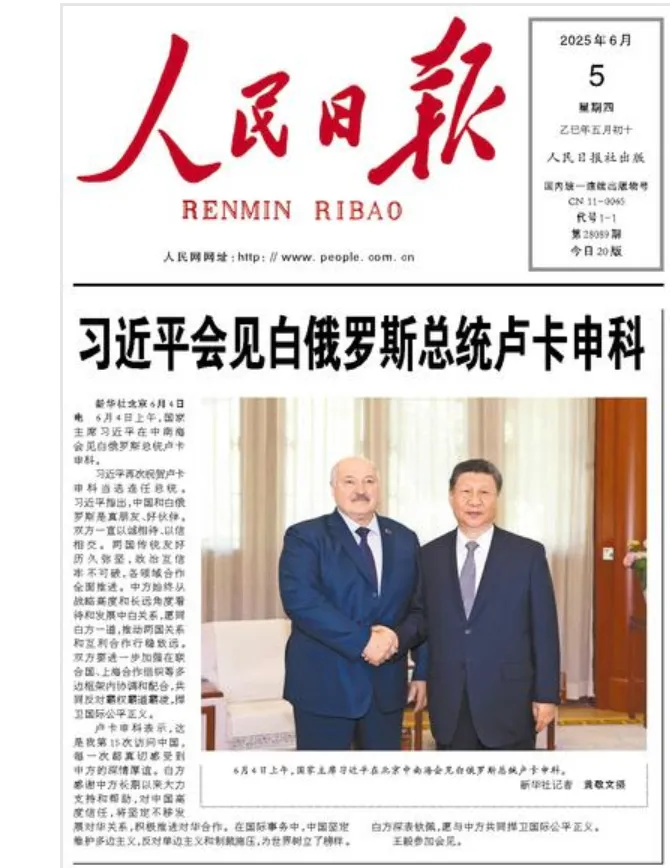China Strengthens Its Ties with Belarus Amidst Global Tensions
In a significant development on the international stage, Chinese President Xi Jinping met with Belarusian President Aleksandr Lukashenko, reinforcing the political ties and military cooperation between the two nations. The meeting, held ahead of the September 3 military parade in Beijing, reflects China’s intent to showcase a united front with allied countries amid rising sanctions and international scrutiny.
A Troubling Background
Belarus has been under the scrutiny of Western nations due to its handling of dissent following the 2020 presidential elections, which were widely condemned as fraudulent. In response to the crackdowns on protests, the European Union and the United States imposed a series of sanctions on Lukashenko’s regime. Facing isolation, Belarus turned to China, nurtured by a common disdain for Western influences.
A Celebration of Military Might
The military parade on September 3, marking the anniversary of the victory over Japan in World War II, serves multiple purposes. Not only does it allow China to present its military prowess to the world, but it also provides a platform for Belarus to position itself as a loyal ally, despite its current global isolation. In his remarks, Xi described Belarus as “China’s true friend,” underscoring the depth of their relationship.
Strengthening Military Collaborations
In the recent meetings between Xi and Lukashenko, military cooperation surfaced as a focal point. Both leaders emphasize the training of military forces and the sharing of military technology. The geopolitical landscape of Eastern Europe is shifting, and a closer Sino-Belarusian partnership could be a strategic counterbalance to NATO’s presence in the region.
Mutual Benefits
For China, cultivating a partnership with Belarus offers both strategic and economic benefits. Belarus serves as a crucial transit point in China’s Belt and Road Initiative, allowing access to European markets. Conversely, for Belarus, aligning with China could provide economic relief and opportunities that are otherwise stifled by ongoing sanctions.
Both nations are looking to enhance their economic collaboration through increased trade agreements, investment in infrastructure projects, and military procurement arrangements. This symbiotic relationship opens doors for business and technological exchanges that are critical for both economies.
A Shared Vision
As Xi congratulated Lukashenko on his resilience against Western sanctions and praised the strength of bilateral relations, he hinted at a shared vision devoid of Western interference. The two nations aim to promote a multipolar world, challenging the dominance of Western powers. Their partnership is framed not just as cooperation in military and economic spheres but as a unity against what they perceive as the hegemonic tendencies of the West.
International Implications
This burgeoning alliance raises eyebrows globally, particularly among nations wary of an empowered China and the perception of an increasingly authoritarian Belarus. The support extended by China to Belarus is indicative of broader geopolitical shifts, suggesting that while Belarus is isolated in the West, it has found a reliable ally in the East.
What Lies Ahead?
The relationship between China and Belarus is likely to develop further as both nations navigate a post-pandemic landscape marked by economic challenges and political instability. Vigilance from the international community will be necessary as developments unfold, given that a stronger Sino-Belarusian partnership could potentially destabilize the balance of power in Europe.
Conclusion
The strong ties between Xi Jinping and Aleksandr Lukashenko illuminate how countries can align based on shared ideals and mutual interests, particularly when facing similar external pressures. For Belarus, the partnership with China represents a lifeline, while for China, it underscores a strategic maneuver to reinforce its influence in Eastern Europe. As evidence mounts of their growing alliance, the implications could echo far beyond their borders, shaping an evolving geopolitical narrative on the international stage.







